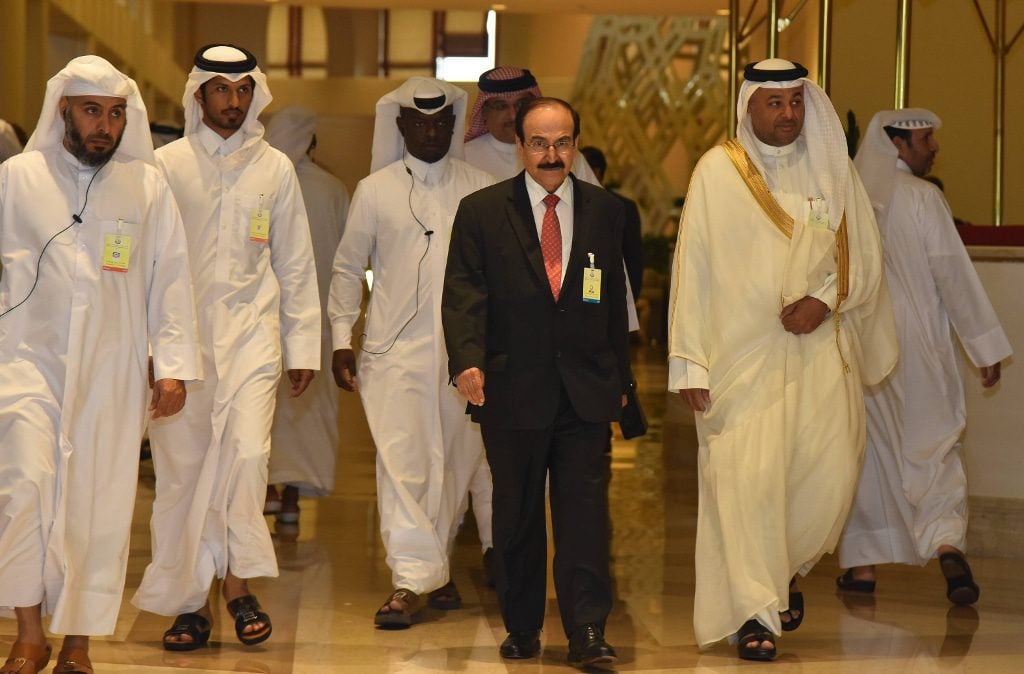Low oil prices are no longer seen as only temporary. And the way things look in 2016—with continuing low demand and OPEC not fundamentally changing its position—this will not change anytime soon. "It may actually be a blessing in disguise,” says a Bahraini businessman working in Al Khobar (Saudia Arabia).

Cost-cutting is the buzzword in the Gulf region—not surprising in April 2016, after a year and a half of low oil prices. Less money coming into the coffers of the state means less money going out, and sovereign wealth funds go only so far. It is time for some serious measures.
Easier said than done: there is a social contract standing in the way. For years, citizens of the Gulf states have relied on government handouts such as fuel subsidies, free or nearly free utilities, scholarships, housing allowances, health care, and guaranteed—often irrelevant—jobs paying generous salaries. Such is the deal between the rulers and the people.
Breaching that contract is unavoidable and has long been called for by the IMF and other institutions. The UAE was the first Gulf state to cut fuel subsidies and raise electricity prices, followed soon by Saudi Arabia and most other Gulf states. So far, this has not led to civil unrest.
This can perhaps be explained by the fact that most people do not feel the consequences of the price hikes. A better explanation is that the citizens of these countries have no say in politics and so far have not dared to go into the streets to protest.
This also explains why Kuwait, the Gulf’s most democratic country, is the exception. Apart from a cut in diesel subsidies, little has happened. Every suggestion by the government to cut costs is met with fierce resistance from the parliament. Its response is usually something like, “Do what you need to do, as long as it does not hurt the citizens.”
Similar expressions are heard in the oil sector itself, where the state-owned Kuwait Petroleum Company is seeking to privatize certain facilities and reduce salaries, benefits, and other perks. So far, the only result has been angry parliamentarians and strikes by workers.
People may not want to give up their comfortable lifestyle, but also involved is their lack of trust in the government. Many Kuwaitis feel that, after billions of dollars worth of corrupt deals made over the years by—and to the benefit of—the ruling elite, it is now payback time.
Meanwhile, banks cannot avoid the consequences and have begun to feel the pain for various reasons, one of them being that oil revenues have stopped flowing into their accounts. The regional stock markets are not immune from the drop in oil prices either.
And finally, even in Kuwait, individuals begin to feel uncertain about their own financial futures and spend less on travel, food, and clothes. Slowly but surely, this is being felt by sectors such as retail and (local) tourism.
So, although the riches have not become rags overnight, the low oil prices are no longer seen as only temporary. And the way things look—with continuing low demand and OPEC not fundamentally changing its position—this will not change anytime soon.
“It may actually be a blessing in disguise,” says a Bahraini businessman working in Al Khobar (Saudia Arabia). “In the past, when you saw a project with a budget of 100 million, you could be sure that it could be done for half the price,” he says. “Now, costs are cut on all sides, which is a good thing.”
Indeed, it doesn’t sound bad: a leaner, meaner public and private sector, where the value of money finally hits home, where citizens wake up to the reality of really having to make a living, where consumption falls to “normal” levels, and where fewer high-rises are built (many of which are destined to stay empty anyway).
The downside may be that those who will eventually suffer most are not those who caused the problems in the first place. It will be the millions upon millions of foreign workers who labour in the houses, construction sites, and companies of the Gulf. They know, and they are nervous. The job market is already slowing, mostly in the oil sector.
Nevertheless, if the Gulf Cooperation Council is serious about reforming its economy, with more work done by its own people and less money spent on unproductive projects, it will eventually hit the millions of low-skilled and semi-skilled workers.
One day, the indispensable cooks, drivers, and tea boys may turn out to be dispensable after all. One day, the accounting departments will be filled with locals rather than Indians. One day, although admittedly probably well in the future, people may be willing to fill their own bags at the supermarket and even carry them to their car.
For those whose jobs are on the line, it is hard to see a blessing in disguise. They are not impressed by the argument that, after all these years of slaving in the Gulf, it may actually be nice to go home. To them, the idea is academic. Their reality is not one of choices or blessings. Or, as a veteran Indian cleaning woman in Kuwait puts it, “If I go back to India, where will my income come from, ma’am?”


